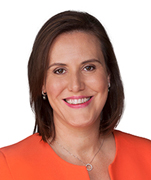Existing financial advisers will be required to a hold a degree equivalent qualification by 1 January, 2024 if they wish to continue to practice, according to new proposals released by the Financial Adviser Standards and Ethics Authority (FASEA).

Advisers, however, may be able to short track the study they may need to do as FASEA also announced that advisers who had undertaken eight units at a post-graduate level by 1 January, 2024 would also meet the required standard to practice.
In the proposals which have been released for consultation, advisers would be able to continue practicing from the start of 2024 if they:
- hold a qualification that is on the FASEA approved register;
- have completed an Australian Quality Framework level 7 (AQF), or bachelor degree level, qualification that is on the FASEA approved register;
- have completed a course that offers at least 8 units at AQF level 8, or post-graduate level, covering fields that include ethics, professional attitudes and behaviours, financial planning and advice processes, and technical requirements.
The consultation paper released by FASEA stated that an 8 unit AQF8 program typically led to a Post Graduate Diploma qualification, which takes two years to complete part time, but admission into an AQF8 program required at least five years experience. In comparison, an AQF7 level qualification which would take three years full time and six years part time.
Advisers who currently hold a financial planning or financial advice qualification will need to ensure that it is recognised by FASEA…
Advisers who currently hold a financial planning or financial advice qualification will need to ensure that it is recognised by FASEA, and if not will be required to undertake a course of study as will those who gained qualifications more than 10 years ago.
In some cases, advisers will be allowed to take bridging courses but the details around these have not been released and FASEA expects the first of these courses to be available from early 2019.
The Minister for Revenue and Financial Services, Kelly O’Dwyer MP, welcomed the guidance stating, “This announcement will provide early certainty around what will be required for financial advisers to meet the new requirements.”
O’Dywer said previous education requirements were found by the Financial System Inquiry and the Parliamentary Joint Committee on Corporations and Financial Services to be insufficient and allowed some advice to be given after only a few days of training.
“This announcement by FASEA continues the implementation of the Government’s reforms that will build trust and confidence in the financial advice industry and ensure that consumers have access to professional advisers who will put their interests first,” O’Dwyer said.
The consultation paper will be open to stakeholder feedback on the practical application of the proposed education guidelines from early 2018.




What about all the insurance, bank, direct, superannuation employees and call centre staff who sell the same investments/insurances/super policies but under the guise of General Advice?
They are the problem as they have no requirement to “Know their client” and no Best Interests Duty. Yet they get paid the same commissions/advice fees (either through bonuses linked to productivity or direct commissions) but have none of the excess paperwork lumped on advisers.
Why target just advisers? These rules need to apply to everyone providing any advice (General or tailored) for them to work.
If existing advisers dont want to waste time going back to uni, just do what the banks/insurers/super funds do and provide the same investments/insurance policies under general advice. The pay is the same but your costs are more than halved, you save 8 hours per client due to less compliance and paperwork and you cant get sued as you didn’t make any recommendations.
You can also get rid of the parraplanners who we currently have to hire and pay $70k+ pa to help us interpret and comply with ASIC’s ever increasing regulatory burden.
Wow, so I’m 33, finished my CFP in 2009 and degree in financial planning at university in 2005, but am consider unqualified. My studies took 5-6 years of my life and it’s still not enough.
Kelly. When 90% of existing advisers (most of whom have excellent degrees and experience) don’t meet the current requirements, you have a problem. When the board of FASEA have conflicting financial incentives to ensure that 90% of advisers don’t meet the requirements, you have a problem. When the average age of advisers is late 50’s and for obvious reasons will not want to resit another degree just for a few more years in the industry, you have a problem.
When there are no new advisers coming through, you have a problem.
In 6 years time there will be 90% of customers without the ability to get advice other than general advice directly with the insto’s you not only have a problem but you have managed to decimate an entire industry where the winners will be the insto’s and the losers of course will be the customers or perhaps this was the aim all along?
Kelly appreciate YOU are not appropriately qualified in Financial Services and no doubt will have an insto lined up career after politics but are you at all serious when you say “customers can have access to professional advisers”? You have just managed to destroy that future option for 90% of customers.
The uninformed, uneducated, unqualified and unemployable politicians imposing commands on how people must live and work.
I thought we lived in Australia, not North Korea, China or Russia.
Comments are closed.